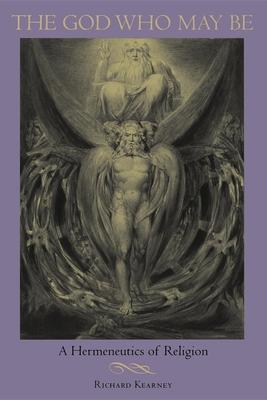"Kearney is one of the most exciting thinkers in the English-speaking world of continental philosophy. . . . and [he] joins hands with its fundamental project, asking the question 'what'or who'comes after the God of metaphysics?'" --John D. Caputo
Engaging some of the most urgent issues in the philosophy of religion today, in this lively book Richard Kearney proposes that instead of thinking of God as 'actual, ' God might best be thought of as the possibility of the impossible. By pulling away from biblical perceptions of God and breaking with dominant theological traditions, Kearney draws on the work of Ricoeur, Levinas, Derrida, Heidegger, and others to provide a surprising and original answer to who or what God might be. For Kearney, the intersecting dimensions of impossibility propel religious experience and faith in new directions, notably toward views of God that are unforeseeable, unprogrammable, and uncertain. Important themes such as the phenomenology of the persona, the meaning of the unity of God, God and desire, notions of existence and diffrance, and faith in philosophy are taken up in this penetrating and original work.
Richard Kearney is Professor of Philosophy at Boston College and University College, Dublin. He is author of many books on modern philosophy and culture, including Dialogues with Contemporary Continental Thinkers, The Wake of Imagination, and The Poetics of Modernity.

"Kearney is one of the most exciting thinkers in the English-speaking world of continental philosophy. . . . and [he] joins hands with its fundamental project, asking the question 'what'or who'comes after the God of metaphysics?'" --John D. Caputo
Engaging some of the most urgent issues in the philosophy of religion today, in this lively book Richard Kearney proposes that instead of thinking of God as 'actual, ' God might best be thought of as the possibility of the impossible. By pulling away from biblical perceptions of God and breaking with dominant theological traditions, Kearney draws on the work of Ricoeur, Levinas, Derrida, Heidegger, and others to provide a surprising and original answer to who or what God might be. For Kearney, the intersecting dimensions of impossibility propel religious experience and faith in new directions, notably toward views of God that are unforeseeable, unprogrammable, and uncertain. Important themes such as the phenomenology of the persona, the meaning of the unity of God, God and desire, notions of existence and diffrance, and faith in philosophy are taken up in this penetrating and original work.
Richard Kearney is Professor of Philosophy at Boston College and University College, Dublin. He is author of many books on modern philosophy and culture, including Dialogues with Contemporary Continental Thinkers, The Wake of Imagination, and The Poetics of Modernity.